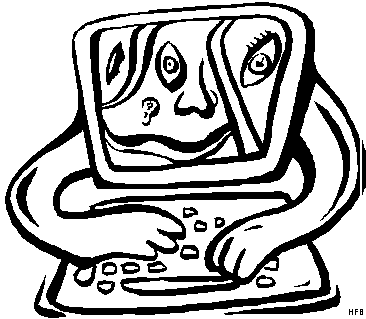Death of the Author, Birth of the Algorithm
Are we entering the age of the Bionic Bard?
Remember all those chimpanzees with typewriters we’ve locked in a room somewhere until they’ve written the complete works of Shakespeare? Well, sadly for them, a computer algorithm looks like it might just beat them to it.
Consider the following, written by ChatGPT this morning:
St Andrews, O St Andrews, A town caught in paradox A place of ancient ruins And modern student blocks.
Granted, it isn’t ‘to be or not to be’ quite yet. But suspend your disbelief a little and it isn’t hard to imagine the following comments being made about these lines in an English tutorial:
Student 1: “The poet is torn between the useless beauty of ‘ancient ruins’ and the grim practicality of ‘modern student blocks’”.
Student 2: “I think that the poet displaces an anxiety of ageing onto lifeless structures, where the ‘student blocks’ are haunted by the spectre of the ‘ruins’ which are both their past and their future”.
The point is that computer-generated poetry can cast a rod into our souls and pull out creatures from the psychic depths. And it will only get better, plunge deeper. Algorithms already create poems with enough meat on them to get the undergraduate vultures swooping in search of their next interpretation.
All of which makes the future of the artist pretty uncertain. If AI poetry can feed our appetite for interpretation, and through interpretation hold the mirror as ‘twere to ourselves, then what need have we for the human artist? Hopelessly inefficient (and usually quite strange), why not instead mobilise the mass production of art? One million fresh poems per minute, delivered piping hot to the inboxes of students and dilettantes worldwide?
And yet, in a world where computers fly aeroplanes and operate on brains, the humanities have remained stubbornly human. Roland Barthes thought time was up for the artist back in 1967, famously pronouncing the death of the author. But the fifty plus years since have shown that reports of the author’s death, to misquote Mark Twain, have been greatly exaggerated. Perhaps no longer. I wonder if AI really is the author’s death knell, and that with the death of the author comes the birth of the algorithm-cum-artiste.

And yet I suspect it is not. Stockfish, the most powerful chess engine, is the world’s best chess player. But competitive chess has not become the pitting of Stockfish against Stockfish, cancelling itself out ad infinitum in a stale ritual of technical perfection. Instead, Stockfish’s purpose has always been heuristic. Why? Because sport and art are gateways to our shared humanity, powerful tonics for the retreat into isolated subjectivity that is modernity. We go to art to find flaws, vulnerability, and humanity so that we feel less alone. What we do not want, and cannot believe in anyway, is perfection.
And this is the problem with AI art: although it can make art, it cannot make art that we believe in. Which is rather good news for the human artist. When Larkin describes ‘the dread/Of dying, and being dead’, we find our own anxieties in another mind, thus sharing and alleviating them. The same words spat out at the end of an algorithm would instead be more curiosity than comfort.
This is why the outline of a human hand on a cave wall captivates more than any computer-generated visuals, however hyper-sophisticated or hyper-realistic. Because human self-expression, which we call ‘art’, allows synapses to connect across time and minds, giving us an experience of profound co-presence in the world.
And so human artwork becomes the watering hole in the spiritual wasteland of modernity. Presence is our obsession. Theistic religion is so powerful because it promises presence above the stars. Our collective fascination with the possibility of alien life can be reduced to this same fixation with presence. Replace the cerebral language of ‘artificial intelligence’ with the emotional ‘artificial presence’, and you can see more clearly its real role in the human enterprise. Perhaps the roots for our presence-complex take hold in infancy, when the presence of the mother guarantees the total satisfaction of every desire.
Regardless, as soon as we learn that a poem is computer generated, presence becomes absence, and the artwork short circuits. No connection is made. Tell someone that the Vermeer that so entrances them is a fake, and suddenly the spell is broken. To do so is to transform the painting from a window — a transparent, intra-subjective portal — to an opaque wall, an aesthetic flourish and nothing more. The same goes for computerised poetry. Barthes will have to continue his long wait for the author to roll over and die. Meanwhile, spare a thought for those chimps.
Photo: Wikimedia Commons
